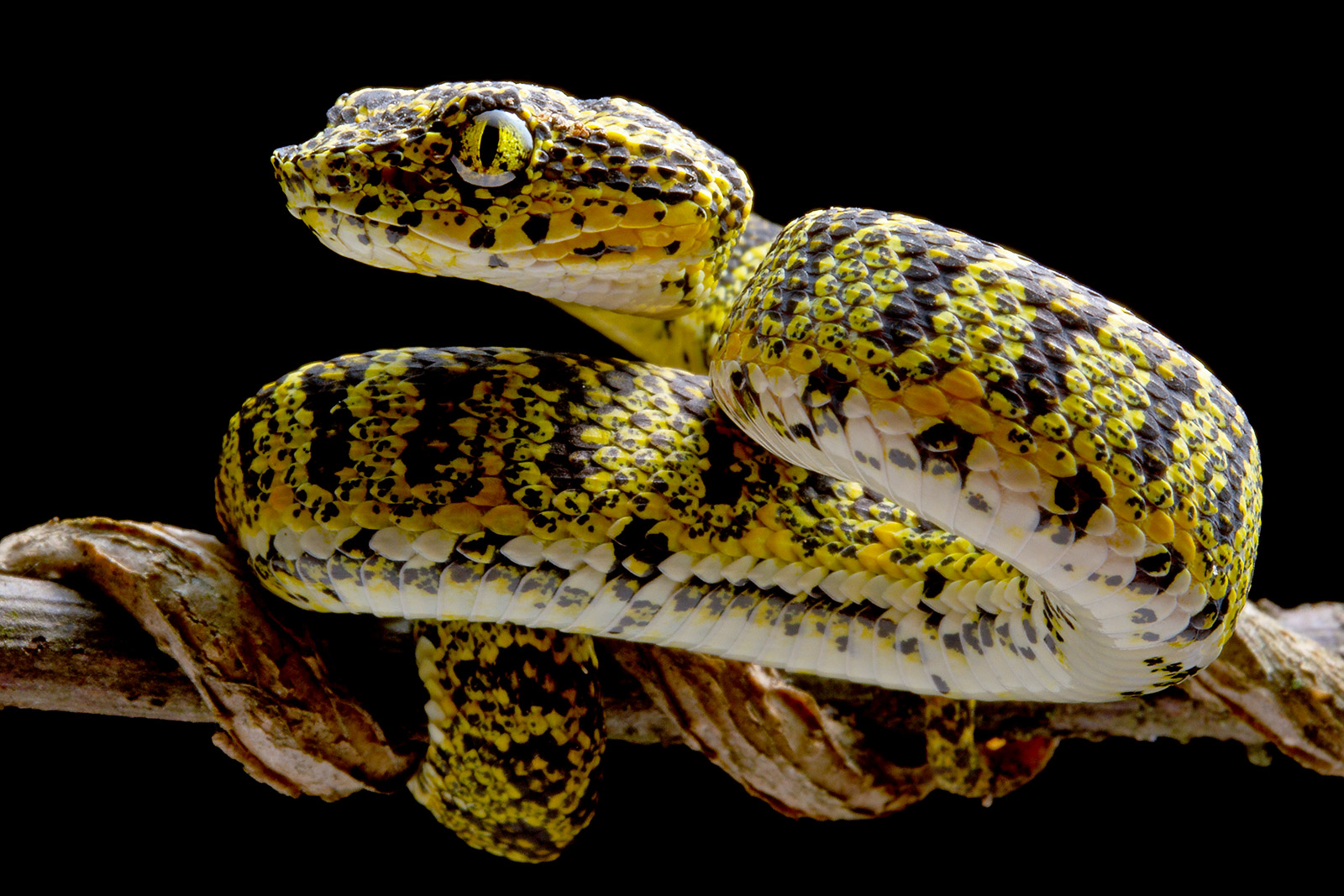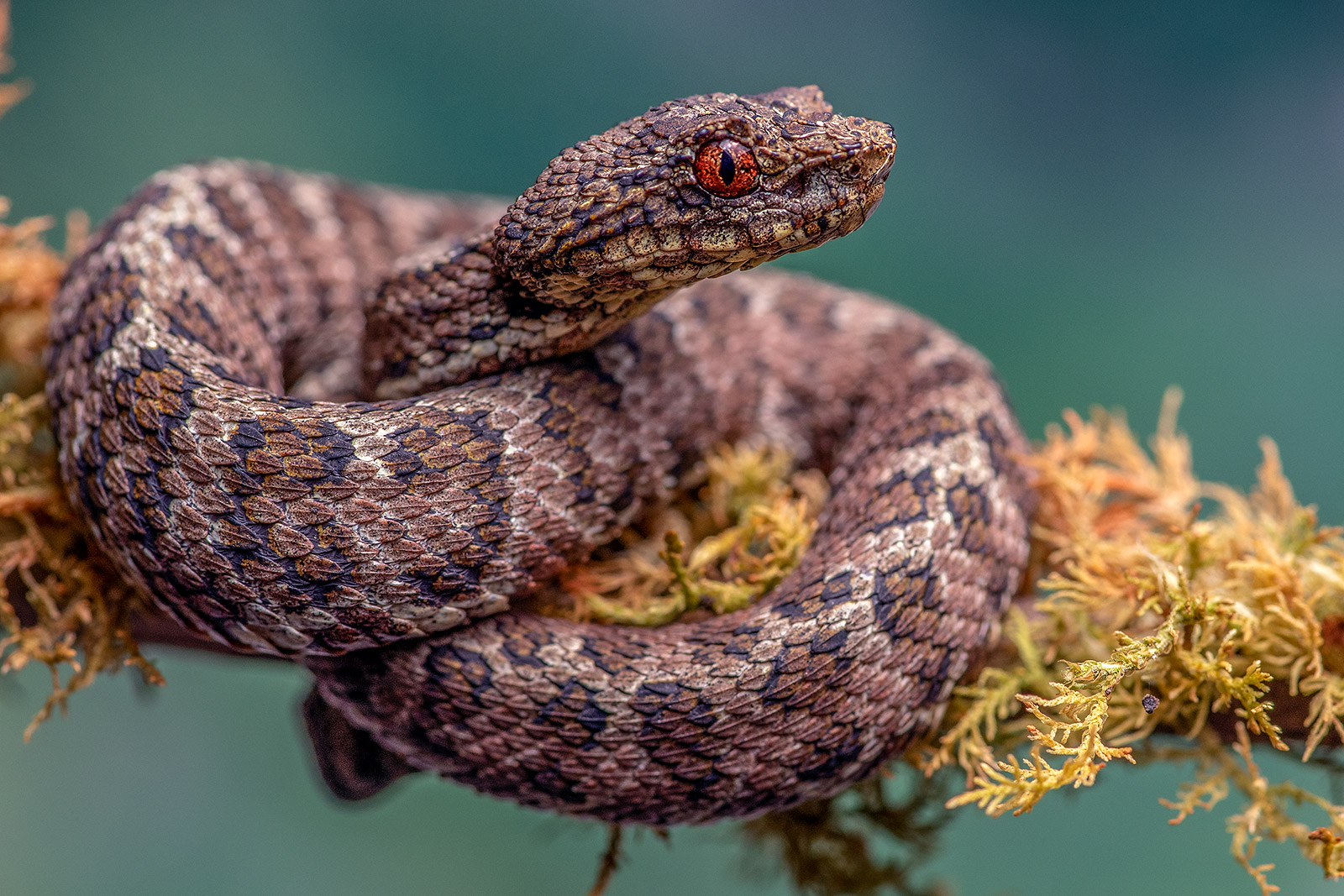A single species of eyelash viper already sounds cool – the prominent spiny scales above their eyes give them a distinctive and, dare we say it, iconic look. Now, after a decade-long study, the number of species is about to multiply, as researchers have discovered that what was thought to be one species of eyelash viper is, in fact, five.
The trigger to this discovery was one of the study’s authors, Lucas Bustamante, being bitten by a member of one of the new species – not much fun for the researcher we imagine, but great news for science. The team also found that the “lashes” seen on vipers appeared to vary in length and style across different populations, suggesting that what was believed to be the eyelash palm-pit viper (Bothriechis schlegelii) could actually be more than one species.
From that point on, the researchers spent 10 years examining museum specimens, locality records, and DNA data relating to individual eyelash vipers found in the cloud forests and jungles of Colombia and Ecuador.

Black-and-yellow morph of Hussain’s eyelash pit viper.
Their analysis revealed what is likely a complex of five very similar, but distinct, species of eyelash viper. Shah’s (B. rasikusumorum), Klebba’s (B. klebbai), and Khwarg’s eyelash pit viper (B. khwargi) are thought to be endemic to the eastern Cordillera of Colombia, found amongst cloud forests and coffee plantations. Rahim’s (Bothriechis rahimi) eyelash pit viper, on the other hand, is located at the border between Colombia and Ecuador in the Chocó rainforest, whilst Hussain’s (B. hussaini) is found in the forests bordering Ecuador and Peru.
All of the species are considered to be polychromatic, meaning they come in a dazzling array of colors that are theorized to allow them to blend into a variety of ambush spots. Even within the same species, it’s possible to find a turquoise, gold, and even “ghost” morph. “No two individuals have the same coloration, even those belonging to the same litter (yes, they give birth to live young),” said Alejandro Arteaga, who led the study, in a statement.

Coffee morph of Klebba’s eyelash pit viper.
As well as being pretty, the vipers also pack a punch. All of the new species are venomous – though thankfully for Bustamante, not quite as much as some of their relations. “The venom of some (perhaps all?) of the new species of vipers is considerably less lethal and hemorrhagic than that of the typical Central American Eyelash-Viper,” said Bustamante, who was bitten back in 2013.
“I experienced intermittent local pain, dizziness and swelling, but recovered shortly after receiving three doses of antivenom in less than two hours after the bite, with no scar left behind.”
Though the variety of colors and a nip to a researcher’s finger might be exciting parts of the story, the key message from the researchers is that the new species need to be protected; four out of the five are considered at high risk of extinction.
“The need to protect eyelash vipers is critical, since unlike other snakes, they cannot survive without adequate canopy cover,” said Arteaga. “Their beauty, though worthy of celebration, should also be protected and monitored carefully, as poachers are notorious for targeting charismatic arboreal vipers for the illegal pet trade of exotic wildlife.”
It’s hoped that further research, particularly into the venom of the new species, will help to bring awareness to the situation and encourage the conservation of this colorful and unique group of reptiles.
The study is published in the journal Evolutionary Systematics.
Source Link: Five New Species Of Fabulous Eyelash Vipers Discovered In Remote Colombia And Ecuador